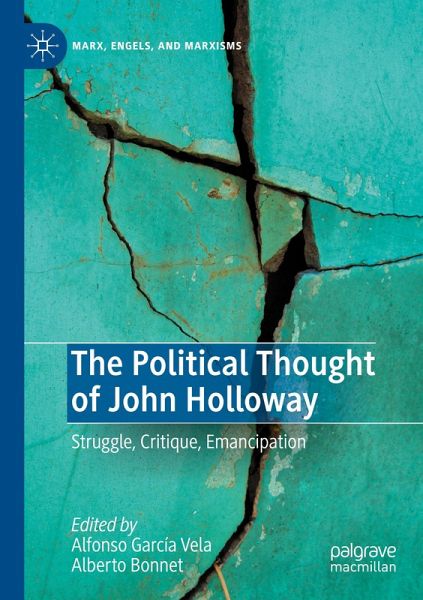
The Political Thought of John Holloway
Struggle, Critique, Emancipation
Herausgegeben: García Vela, Alfonso; Bonnet, Alberto
Versandkostenfrei!
Versandfertig in 6-10 Tagen
98,99 €
inkl. MwSt.

PAYBACK Punkte
49 °P sammeln!
This book provides renewed reflection and critical discussion on John Holloway's political and theoretical thought. Two decades ago, in Change the World without Taking Power, Holloway set out on a path that he followed a decade later in Crack Capitalism and continues to walk today with his new book, Hope in Hopeless Times. The contributions in this volume critically analyze his innovative attempt to rethink the meaning and dynamics of revolution in the conditions of contemporary capitalism. More than ten years after the publication of Crack Capitalism, this volume aims to question Holloway's a...
This book provides renewed reflection and critical discussion on John Holloway's political and theoretical thought. Two decades ago, in Change the World without Taking Power, Holloway set out on a path that he followed a decade later in Crack Capitalism and continues to walk today with his new book, Hope in Hopeless Times. The contributions in this volume critically analyze his innovative attempt to rethink the meaning and dynamics of revolution in the conditions of contemporary capitalism. More than ten years after the publication of Crack Capitalism, this volume aims to question Holloway's attempt, as well as his theoretical foundations in his original rereading of Marxism and Critical Theory and their relations with the characteristics adopted by the anti-capitalist struggles during the last two decades. Its authors, from different geographies, traditions, and scientific disciplines, establish throughout its pages a fruitful dialogue convened by Holloway's innovative ideas.












